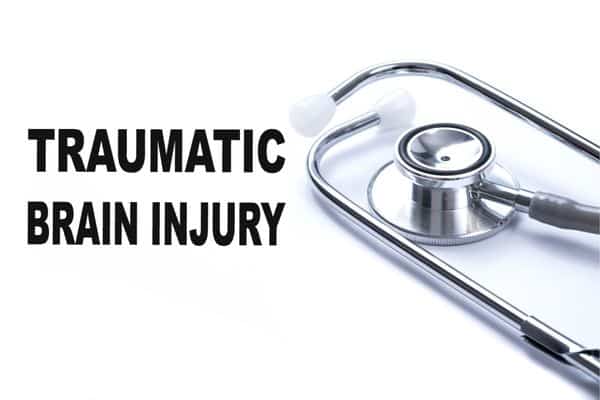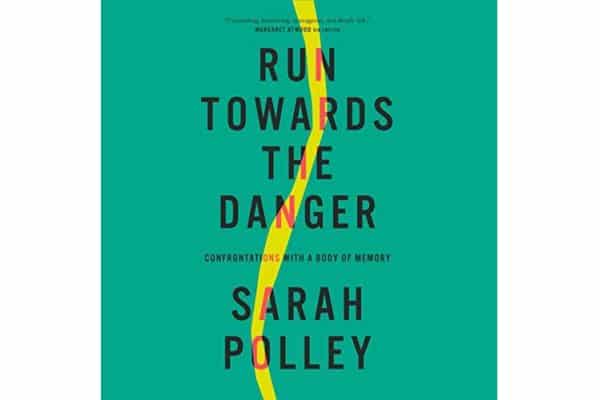In Sarah Polley’s new book ‘Run Towards the Danger: Confrontations with a Body of Memory’ the actor and filmmaker shares emotional stories of her life, including her experience overcoming a concussion.
Run Towards the Danger – Concussion Support
Sarah Polley’s new book ‘Run Towards the Danger: Confrontations with a Body of Memory’ is an affirming and supportive read for anyone recovering from a concussion.
The book, made up of six essays that span her life from child actor to Hollywood screenwriter, is a captivating read. But the essay that everyone seems to be talking about is the story of her concussion.
Having a concussion, or any brain injury can be very isolating. Trying to understand and describe what is happening can be frustrating, overwhelming and frightening.

Polley is a talented storyteller, and this report of her lived experience of having and recovering from a concussion is an excellent read for anyone in a similar situation.
What is a Concussion
A concussion is a traumatic brain injury, often caused by a blow to the head. Concussions affect brain function and symptoms can be headaches, problems with focus and concentration, memory issues, and changes with balance and coordination.

Dr. Collins, a concussion expert, feels that there are six types of concussions based on symptoms. These symptoms of a concussion may not show up immediately, and they can interract. They can also present in odd ways, such as personality changes or anger or aggression.
Concussion symptoms can last for days, weeks or even months.
Immediate Effects of Concussion
It is not surprising that someone so skilled in story telling would beautifully describe her experience. Polley’s description of her concussion and how it changed her life is compelling reading.
Here she describes walking outside immediately after her concussion causing incident (a fire extinguisher fell onto her head):

I walk out into the world as it will remain for me for much of the next three years. Cars are moving too fast. The sun is too bright. The noise of even the wind is unbearable.
I feel as though I am underwater, but I am completely calm. When I set the intention to move my limbs, they don’t move at the speed I think they will and I keep veering right. I try to walk a straight line down the middle of the sidewalk, but I keep walking onto people’s lawns.
I have to consciously move myself to the left side of the sidewalk in order to complete a new diagonal that sets me in a forward direction but loses ground again with the sideways movement.
Sarah Polley – Run Towards the Danger: Confrontations with a Body of Memory

What she is describing is her brain’s reduced ability to intake and process visual and auditory cues from the environment and a change in her ability to manage her body in space and time.
She literally cannot walk straight.
Concussion Affects Ability to Do Simple Tasks
Immediately Polley realizes she can no longer do things she used to do. She describes how she had trouble making dinner the first night of her concussion.
My hands seem to move very slowly as I chop vegetables, and I have a dull awareness that perhaps I should be sitting down, but I continue to go through the physical movements of making dinner…
Each of these movements requires its own conscious thought. (Put the fish in a baking dish. Add water to the rice. Plug in the rice cooker. Open the oven door.)
Sarah Polley – Run Towards the Danger: Confrontations with a Body of Memory

or going through airport security:
The rush of people around me, the noise of the moving belt, and the stream of objects in front of my face, coupled with the dozens of tiny decisions that must be made in this situation, make me feel nauseous, dizzy, my vision blurry and my head hurt.
Look at shoes. Untie shoes. Take off shoes. Put shoes on belt. Give passport before or after I put my shoes on the belt? After. Bop baby in carrier to stop her crying. Take carrier off before going through the screener?
When you have a brain injury, you have a unique opportunity to witness how much processing your brain is normally able to do with unnoticed effort. So many small decisions, observations, and conclusions are reached in a twenty-second period.
Sarah Polley – Run Towards the Danger: Confrontations with a Body of Memory

Again, this is a detailed description of what a concussion feels like. A brain injury affects the ability to do even simple tasks, such as making dinner. You can’t do things on automatic pilot anymore. You have to think through each step of a task, even the order of each step.

Something that you did without even thinking before, now it requires your full concentration. It is a complete effort and you feel exhausted after doing even small tasks.
You start to pace yourself, or avoid doing certain tasks because you know how exhausted you will be.
Concussion – Easily Distracted by Noise
Now that simple tasks require your full attention, you are easily distracted by noise. Literally your brain can only focus on one thing at a time.
Usually your brain can take in noises or visual cues in the environment and decide what is important to pay attention to and what isn’t. With a concussion your brain can lose this ability.

And when you cannot easily filter out what is just a distraction, everything becomes a mishmash.
I try to separate my movements from the booming of the children’s voices beside me, which is strangely difficult to do. They seem to be tangled together. How am I supposed to turn the stove on when there is noise in the room? I am aware that this is a new problem for me, and an odd one.
Sarah Polley – Run Towards the Danger: Confrontations with a Body of Memory

Concussion – Easily Frustrated
Polley’s description of how her frustration led her to act differently with her daughter is a vulnerable portrait of how a concussion can change a person’s behaviour.
I snap at Eve. I hold Eve by the arms to stop whatever activity is bothering me. Eve looks startled…. I let go.
I am confused about a lot of things right now, but I am certain that I don’t ever talk to my kids that way, or touch them roughly.
Sarah Polley – Run Towards the Danger: Confrontations with a Body of Memory
People with brain injuries can have what seems like a personality change. As they struggle to do things they used to do easily, and manage symptoms they have never had, the frustration can result in behaviour that is not their normal.

This can be disturbing and shocking for everyone involved. And if no one understands why it is happening it can ruin relationships and lives.
Polley’s honest and vulnerable storytelling of this experience is a gift for anyone who has gone through anything similar.

Concussions Need Understanding and Support
Polley was lucky to have a husband who understood what had happened and supported her while she was suffering from her concussion symptoms.
David takes over most of the daily tasks of getting the kids dressed, fed, and to their activities. I often watch out the bedroom window as he pushes our children down the sidewalk in the double stroller towards a swimming lesson or a playdate or to the park.
I’m grateful to have such a competent, loving partner. I’m even more grateful that I can’t feel much. I know that what I would be feeling, if I were capable, would be unbearable as I watch my life walk away from me every day.
Sarah Polley – Run Towards the Danger: Confrontations with a Body of Memory

Concussion and Difficulty With Conversation
A classic issue that people with a concussion or other brain injury complain of is the inability to follow conversations properly.
It can be especially difficult when there are multiple speakers, or in a noisy environment.
You may not be able to process the information of the conversation (both verbal information and non verbal information like facial expressions) at the speed necessary to properly understand and respond to what is being said.

This can lead to misunderstandings and real relationship problems.
Concussion Symptoms Worsen
The effort required to participate in conversations and social situations can also cause symptoms to flare.
Again Polley described this issue beautifully:
I go to a couple of family gathering of around seventeen people, where I find myself off kilter, and completely slaughtered by the noise, chaos, and light….
Even though I know will feel sick for days as a result of the barrage of stimulus, I go, and as best I can, I pretend to be well.
Sarah Polley – Run Towards the Danger: Confrontations with a Body of Memory

Later in the book Polley describes being in a Hollywood meeting. She has a screenplay, which she wrote, in her hands. But when she looks at the screenplay she doesn’t remember writing it and is unable to answer questions about it in the meeting.
Fortunately she has another meeting, with a friend accompanying her, which goes better and the screenplay does go forward.

This is a shocking thing about brain injuries. Knowledge can be there in your brain, but you are unable to access that knowledge. Memories can be lost, or you are not able to retrieve the information as quickly as you need it.
Concussion – an Invisible Disability
Meanwhile friends and family might not understand what is wrong with you, as a concussion is considered an ‘invisible disability’. The can get frustrated and think you are faking it.
Some family members have asked David, as he struggles alone to corral our toddler and baby at a Christmas party I did not feel well enough to attend, whether I might be “malingering.”
It’s a word I have to look up. Malinger means “to exaggerate or feign illness to escape duty or work.”
Sarah Polley – Run Towards the Danger: Confrontations with a Body of Memory
This may sound awful, but it is very common.

You are acting differently than you used to. Maybe you don’t follow the conversation properly and say something odd, slightly socially inappropriate or offensive.
You are complaining of getting tired or having a headache after a small exertion, when you used to be a very high achieving person.
Because there is nothing outwardly obvious such as a limp or a scar, people think you are behaving oddly by choice.
Concussion Treatment – Run Towards the Danger
Reading the lived experience of Sarah Polley’s concussion in Run Towards the Danger can be highly relatable and validating for anyone also suffering from a concussion.
But a fascinating part of the story is the part where Polley overcomes her concussion by following a radical treatment plan based on the premise of Run Towards the Danger.
Rather than paying so much attention to symptoms she paid more attention to her recovery times. Rather than stopping an activity when she felt symptoms she was to ‘run into the discomfort’. To get better she was to increase her daily exposure to anything that triggered symptoms or caused her pain.
Read more about how the new concept of ‘Run Towards the Danger’ cured Polley of her concussion. And let her get back to fully living her life.



